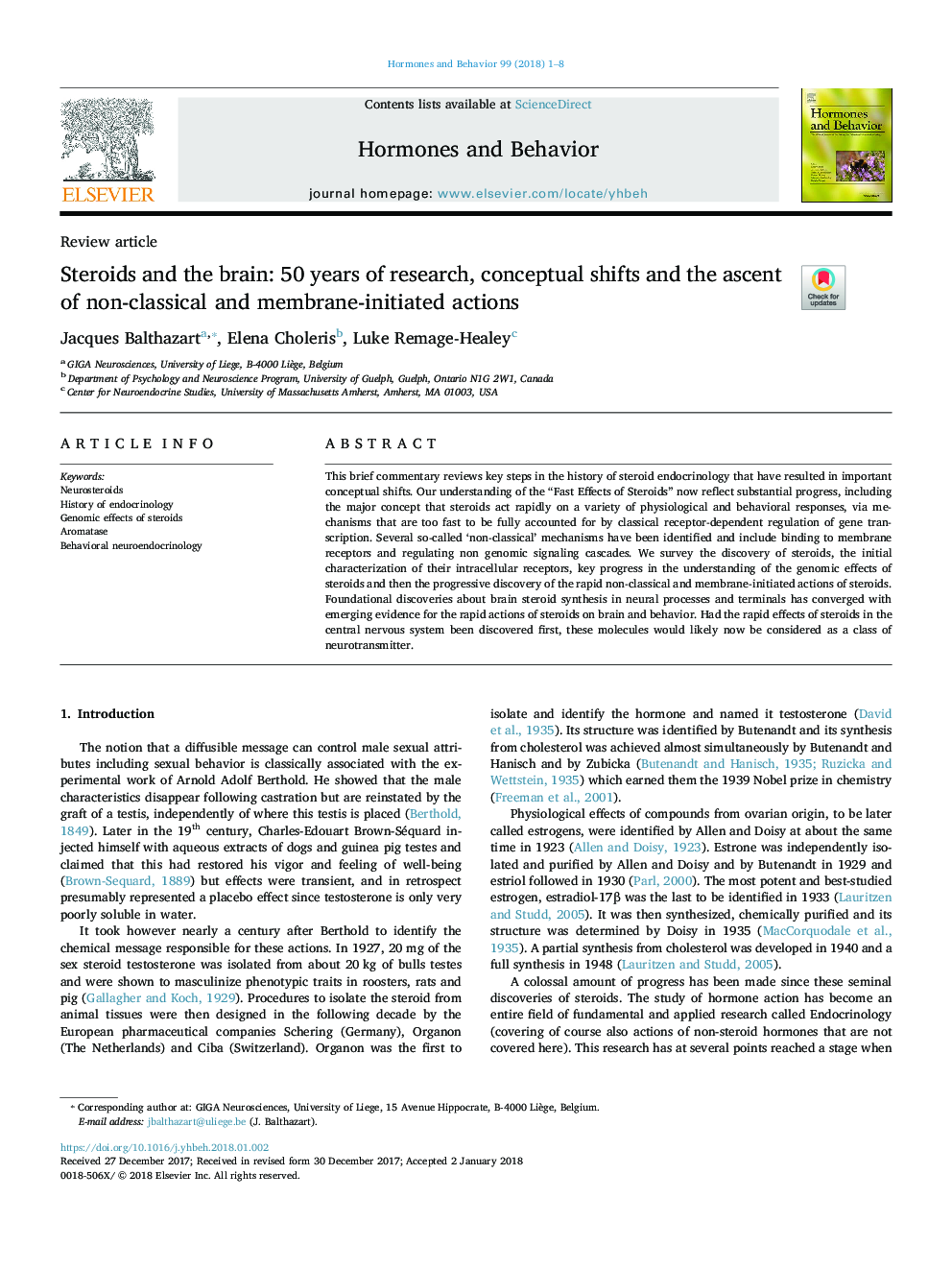| Article ID | Journal | Published Year | Pages | File Type |
|---|---|---|---|---|
| 6793900 | Hormones and Behavior | 2018 | 8 Pages |
Abstract
This brief commentary reviews key steps in the history of steroid endocrinology that have resulted in important conceptual shifts. Our understanding of the “Fast Effects of Steroids” now reflect substantial progress, including the major concept that steroids act rapidly on a variety of physiological and behavioral responses, via mechanisms that are too fast to be fully accounted for by classical receptor-dependent regulation of gene transcription. Several so-called 'non-classical' mechanisms have been identified and include binding to membrane receptors and regulating non genomic signaling cascades. We survey the discovery of steroids, the initial characterization of their intracellular receptors, key progress in the understanding of the genomic effects of steroids and then the progressive discovery of the rapid non-classical and membrane-initiated actions of steroids. Foundational discoveries about brain steroid synthesis in neural processes and terminals has converged with emerging evidence for the rapid actions of steroids on brain and behavior. Had the rapid effects of steroids in the central nervous system been discovered first, these molecules would likely now be considered as a class of neurotransmitter.
Related Topics
Life Sciences
Biochemistry, Genetics and Molecular Biology
Endocrinology
Authors
Jacques Balthazart, Elena Choleris, Luke Remage-Healey,
